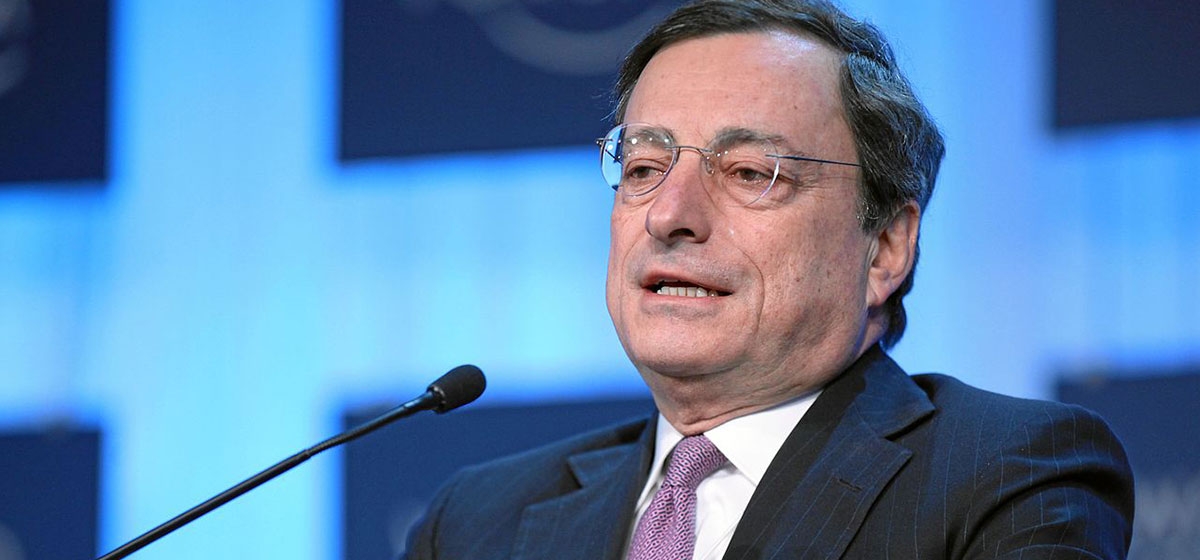The Worst of All Possible Worlds, Conclusion

“How do I loathe thee? Let me count the ways.
I loathe thee to the depth and breadth and height
My soul can reach…
I loathe thee with the breath,
Smiles, tears, of all my life; and, if God choose,
I shall but loathe thee better after death.”
—What Browning would say about Fedecbboj (central bankers at the Fed, the ECB, and Bank of Japan)
I know, I know, I’m indulging myself, but at least I’m having a hell of good time about it. So let’s quickly hammer a final few nails into Fedecbboj’s coffin.
Why was Mario Draghi sent packing with a joke majority? When Draghi, as his last official act at the ECB reduced rates from -0.4% to -0.5%, the move was hugely controversial, no doubt because all central bankers are secret readers of this blog. But Draghi claimed that his move was backed by “a clear majority” of the governing council of the ECB. What he neglected to say was that he was opposed by the Germans, Dutch and French and supported by the likes of Malta, Cyprus, Latvia, Lithuania and Luxembourg. Those last five represent 2% of the EU population and 1% of its GDP. Without them, no majority. A modest suggestion: Mario should have stayed with the family plumbing business, Super Mario Brothers, along with his smarter brother, Luigi.
Believe it or not, things could get worse at Fedecbboj. Draghi’s replacement at the ECB is Christine Lagarde, former head of the IMF. This is the very Lagarde who a) knows virtually nothing about monetary policy (she should fit right in), and who b) engineered the largest bailout in IMF history—of Argentina, which had already been bailed out 21 times—in 2018, only to see the bailout blow up in her face a mere one year later. With judgment like that, we can confidently predict that Lagarde will be welcomed with open arms by Fedecbboj.
Let’s ask ourselves why Fedecbboj is so terrified of recessions. Back in the 1980s, Paul Volker became a folk hero by killing stagflation. He accomplished this feat by engineering not one but two recessions. Immediately, Fedecbboj decided that they could all be heroes. Why should Volker be considered the only successful central banker in the history of the world? And so what Fedecbboj decided to do was to eliminate economic recessions. Yes, they made this decision immediately after Volker had just shown how crucial recessions were to a properly functioning economy.
In the 35 years following the end of World War II, before Fedecbboj’s head swelled to the size of the U.S. deficit, the U.S. experienced nine recessions—roughly one every four years. During that period, the U.S. economy grew to be the dominant economy in the history of the world.
During the next 35 years, thanks to the efforts of the boys and girls at Fedecbboj, the U.S. experienced only three recessions. During that period, we also experienced the Tech Bust and the Global Financial Crisis.
Obviously, Fedecbboj failed to consider what the consequences of few-to-no recessions might be. Fortunately for them, Your Humble Blogger stands ready to correct the record.
What happens when you don’t get the occasional recession is that you don’t get the occasional booming economy. Between 1991 and 2001, the U.S. never experienced a recession. At first, it seemed terrific. It was the time of the Great Moderation, characterized by low inflation, rapid economic growth and no recessions.
Except that all that growth was going to a small elite at the top of the economic pyramid while working people’s incomes stagnated and remain stagnated to this day, and the period ended with the spectacular Tech Bust, when many investors lost 80% or more of their capital.
Then it got worse. Undeterred by the unhappy outcome of the Great Moderation—in fact, blithely oblivious to it—Fedecbboj kept rates too-low-for-too-long yet again and managed to lead the world into the Global Financial Crisis.
Since that time, Fedecbboj has continued to strive to avoid recessions—the current economic expansion, pallid though it be, is the longest in American history, having powered past the ’91-’01 period. Yet Fedecbboj has continued to keep interest rates way-too-low-for-way-too-long, apparently determined to lead the world into the next Global Depression.
I’m sorry to be the bearer of bad news, but we need recessions. Long economic expansions without intervening recessions sound good on the surface, but in fact they merely set the stage for ever-weaker economic performance down the road. This is because poorly managed, weak companies and feeble business models can survive and even prosper during expansionary times.
But these companies make economies much less competitive. They use up capital that could be better deployed elsewhere, treat their employees and communities poorly, and generally take up space. Periodic recessions eliminate these weak players and dramatically improve subsequent economic performance.
A free market economy without occasional recessions gradually creates more and more zombie companies and more and more zombie business models. Eventually, it creates a zombie country.
And, finally, a quick 10-year look-back at Fedecbboj’s accomplishments. First, Fedecbboj deployed the policies that caused the Tech Bust and the Global Financial Crisis—too-low-for-too-long interest rates. Then they bailed out the Wall Street fat cats who’d made millions putting the economy at risk. Then they destroyed ordinary working people’s savings by—hello—keeping interest rates way-too-low-for-way-too-long. Then they drove economic inequality through the roof (by propelling risk asset prices), fueling global populism. Then they so mismanaged the economy that robust economic growth can never happen again short of another Global Financial Crisis. Really, in a way, you have to admire it.





